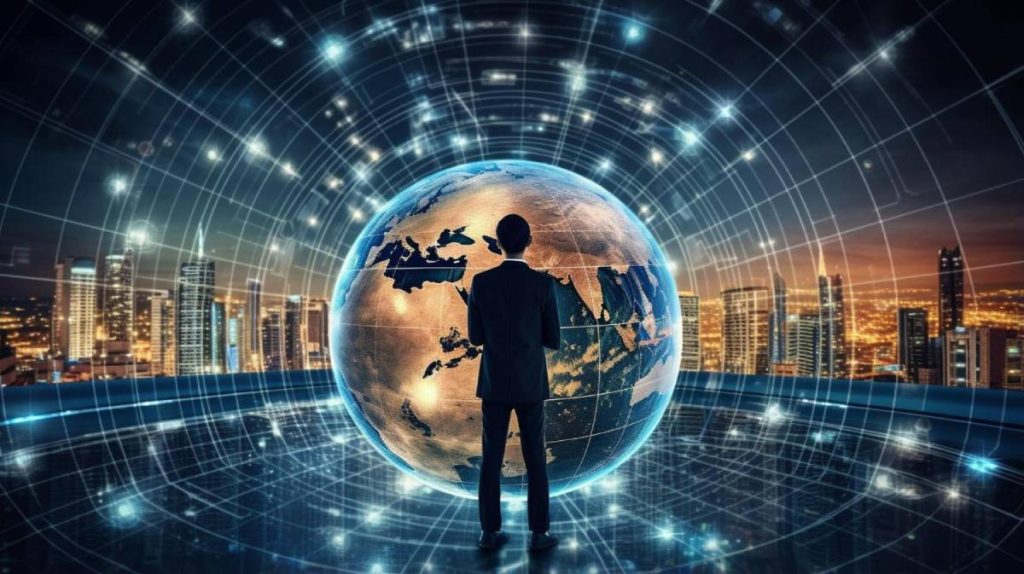In the following sections, we will examine the specific ways AI is reshaping job roles, from automating mundane tasks to creating entirely new positions that require advanced technological skills. We will also discuss the importance of upskilling and reskilling in this dynamic environment, highlighting the need for workers to adapt to the changing demands of the job market. Furthermore, we will explore the ethical considerations surrounding AI in the workplace and how businesses can leverage this technology responsibly to foster innovation and growth.
As we navigate through the complexities of AI’s impact on employment, we invite you to join us in uncovering the opportunities and challenges that lie ahead. Whether you are a job seeker, an employer, or simply curious about the future of work, this article will provide valuable insights into how AI is shaping the global job market. Stay with us as we explore the exciting possibilities that AI brings to the future of work.
Automation and Job Displacement
The rise of artificial intelligence (AI) is leading to significant automation across various industries, which in turn is causing job displacement. Many routine and repetitive tasks that were once performed by humans are now being handled by machines. This shift is particularly evident in sectors such as manufacturing, retail, and customer service, where AI technologies can perform tasks more efficiently and at a lower cost.
As a result, workers in these fields may find themselves facing unemployment or the need to transition to new roles. The challenge lies in reskilling and upskilling the workforce to adapt to the changing job landscape. Companies and governments must collaborate to provide training programs that equip workers with the necessary skills to thrive in an AI-driven economy.
Creation of New Job Opportunities
While AI is responsible for the displacement of certain jobs, it is also creating new opportunities in various sectors. The demand for AI specialists, data analysts, and machine learning engineers is on the rise as organizations seek to leverage AI technologies for competitive advantage. This shift is leading to the emergence of entirely new job categories that did not exist a decade ago.
Moreover, as businesses adopt AI solutions, there is a growing need for professionals who can manage, maintain, and improve these systems. This includes roles in AI ethics, compliance, and governance, which are becoming increasingly important as organizations navigate the complexities of AI implementation.
The Importance of Reskilling and Upskilling
In the face of rapid technological advancements, reskilling and upskilling have become essential for the workforce. Workers must embrace lifelong learning to remain relevant in an AI-driven job market. This involves not only acquiring technical skills but also developing soft skills such as critical thinking, creativity, and emotional intelligence, which are difficult for AI to replicate.
Organizations play a crucial role in facilitating this transition by investing in employee training programs. By fostering a culture of continuous learning, companies can help their workforce adapt to new technologies and ensure that they are prepared for the future of work.
AI in Recruitment and Talent Acquisition
AI is transforming the recruitment process by streamlining talent acquisition and improving candidate selection. AI-powered tools can analyze resumes, assess candidate fit, and even conduct initial interviews, significantly reducing the time and resources required for hiring. This technology allows HR professionals to focus on strategic decision-making rather than administrative tasks.
However, the use of AI in recruitment also raises concerns about bias and fairness. It is essential for organizations to implement AI systems that are transparent and free from discrimination to ensure a diverse and inclusive workforce. This requires ongoing monitoring and evaluation of AI algorithms to mitigate potential biases.
Remote Work and Global Talent Pools
The COVID-19 pandemic accelerated the adoption of remote work, and AI is playing a pivotal role in facilitating this shift. With AI-driven collaboration tools, teams can work together seamlessly, regardless of their geographical location. This has opened up global talent pools, allowing companies to hire the best talent from around the world.
As organizations embrace remote work, they must also consider the implications for employee engagement and productivity. AI can help monitor performance and provide insights into team dynamics, enabling companies to create a more supportive and effective remote work environment.
The Future of Work: Human-AI Collaboration
The future of work will likely involve a collaborative relationship between humans and AI. Rather than replacing human workers, AI can augment their capabilities, allowing them to focus on higher-level tasks that require creativity and strategic thinking. This partnership can lead to increased productivity and innovation across various industries.
To harness the full potential of human-AI collaboration, organizations must foster a culture that embraces technology while valuing human contributions. This includes providing employees with the tools and resources they need to work effectively alongside AI systems, ultimately leading to a more dynamic and adaptable workforce.
| Aspect | Description |
|---|---|
| Job Automation | AI technologies are automating repetitive tasks, leading to the displacement of certain jobs, particularly in manufacturing and administrative sectors. |
| Job Creation | While some jobs are lost, AI is also creating new roles in tech development, data analysis, and AI maintenance, requiring a skilled workforce. |
| Skill Shift | There is a growing demand for skills in AI, machine learning, and data science, prompting a shift in educational focus and workforce training. |
| Remote Work | AI tools facilitate remote work by enhancing communication and collaboration, leading to a more flexible job market. |
| Global Workforce | AI enables companies to tap into a global talent pool, allowing for diverse hiring practices and cross-border collaboration. |
| Ethical Considerations | The rise of AI in the workplace raises ethical questions regarding job security, privacy, and the need for regulations to protect workers. |
| Future Outlook | As AI continues to evolve, the job market will likely see a blend of traditional roles and new opportunities, emphasizing adaptability and continuous learning. |
This HTML document provides a structured overview of how AI is impacting the future of global jobs, presented in a clear and informative table format.



